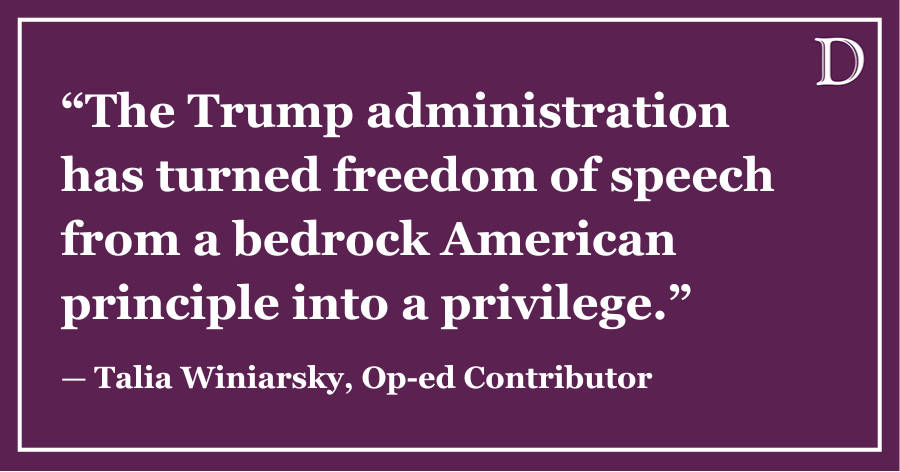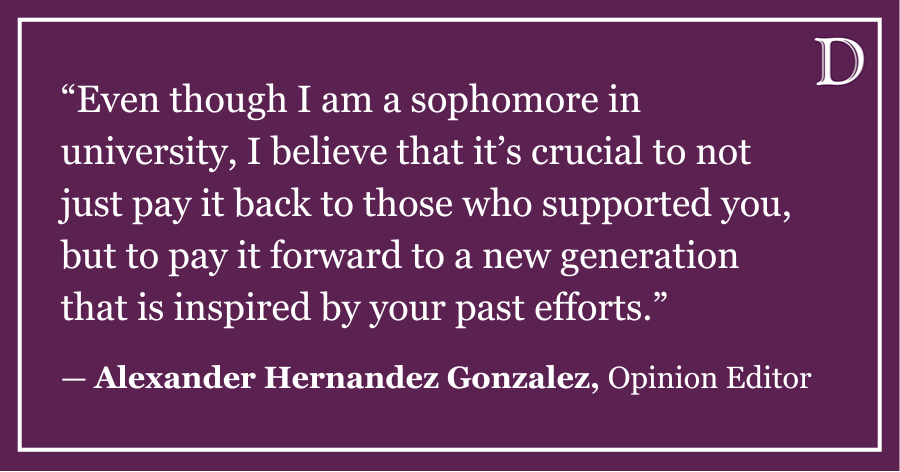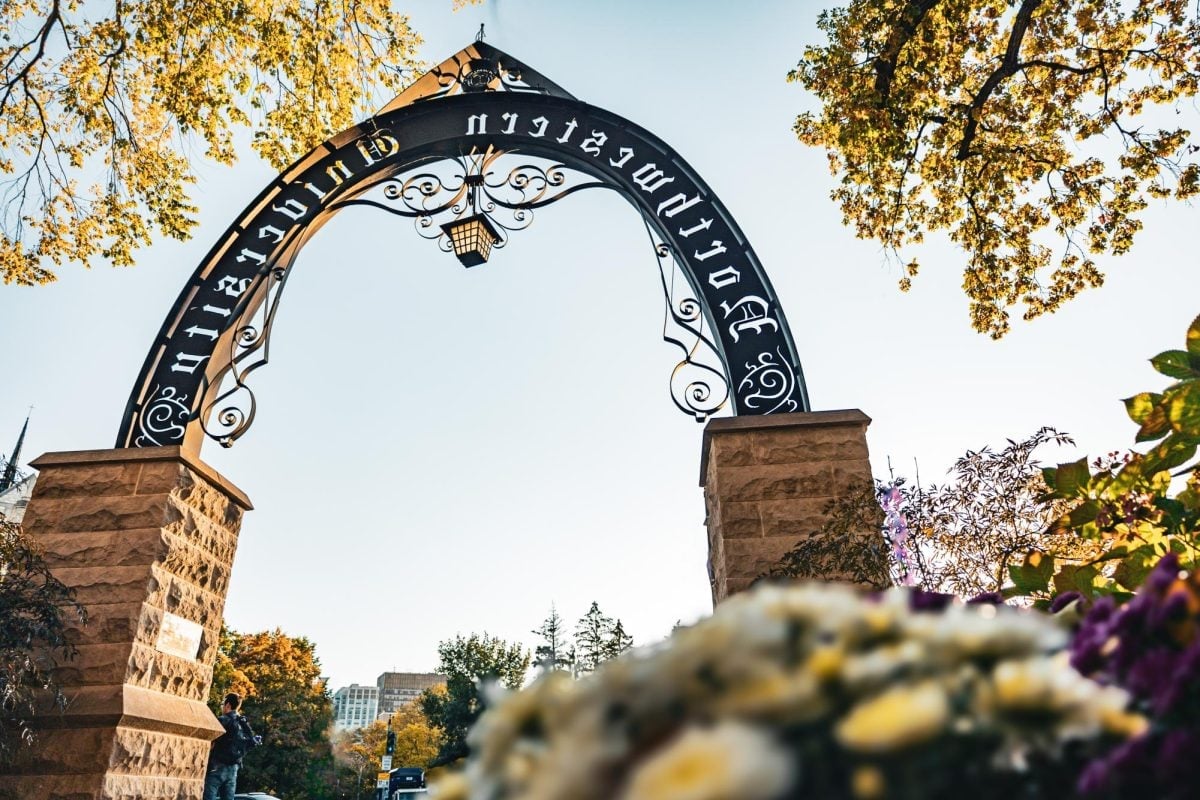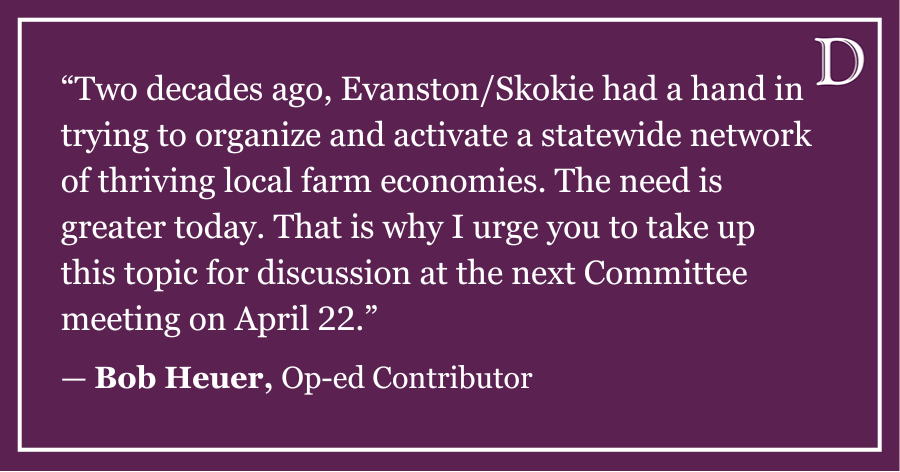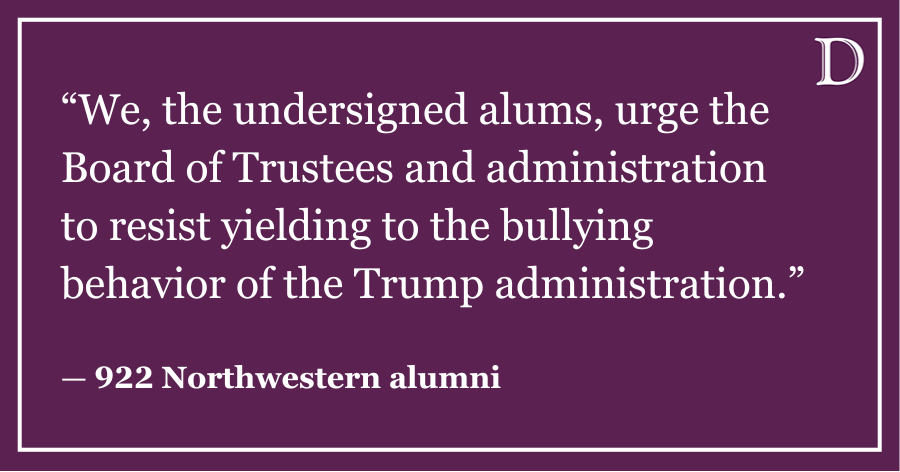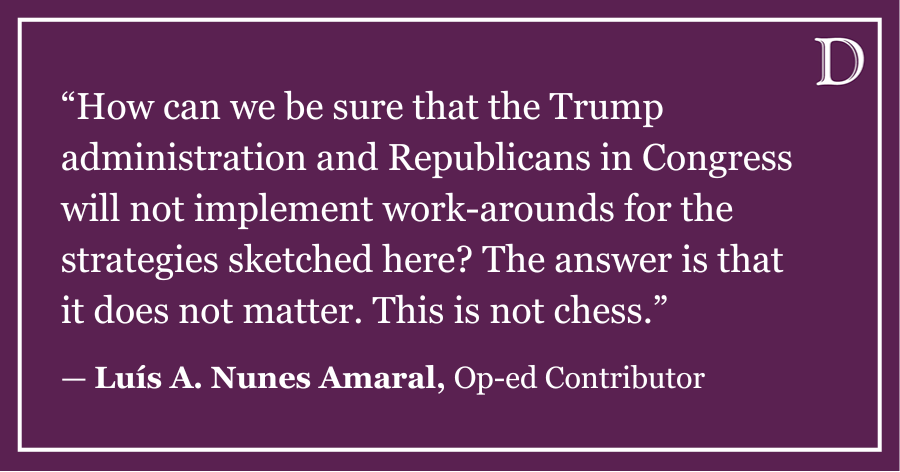I am a proud Northwestern student. I am grateful and indebted to NU for providing me with a world-class education, as well as opportunities to further myself: not only in the fields of media and communication, but also in my passion for building bridges between communities.
However, most of you may not know that I am a student at NU’s campus in Qatar (NU-Q). Even though I studied in Evanston last year, that was only as part of the annual Evanston Communication Exchange Program. Save for the friends I made and the classmates I had in Evanston, most of you are probably unaware that NU has another campus outside of Illinois –– let alone know that it’s located far outside of the United States.
Recognized as a top higher education institution in the fields of journalism, media and communication, NU was invited by the Qatar Foundation in 2008 to establish a campus in Education City, an oasis in Doha, Qatar. The area also hosts other prestigious American universities including Georgetown University, Carnegie Mellon University and Cornell. Roughly seven thousand miles east of Evanston, NU’s campus in Doha is a state-of-the-art facility, considered one of the largest media and communication campuses of its kind anywhere in the world.
In the spirit of celebrating NU’s academic excellence, NU-Q brings together three of NU’s premier schools – the School of Communication, which provides a major in media industries and technologies (a hybrid of communication studies and radio-TV-film majors); the Medill School of Journalism, Media and Integrated Marketing Communications, which supports the NU-Q Journalism & Strategic Communication program; and the Weinberg College of Arts & Sciences, which provides the liberal arts foundation of the campus. The campus concentrates on amplifying voices, stories and perspectives from the Global South.
In the early months of the communication exchange program earlier this year, my fellow NU-Q classmates and I heard that a debate about NU-Q was happening on the Evanston campus. Advertised by NU Political Union, a non-partisan group whose mission is engaging the Northwestern community in political discussions, in February, the question was whether Northwestern should close its Qatar campus.
At first, we were taken aback. My fellow exchange students and I effectively represented NU-Q while we were in Evanston, and here came the startling discovery that some Evanston students were having a discussion about closing our campus without including us. The fact that the debate was billed as “a campus-centric topic” was enough for us to share it with our peers back in Doha. We had a right to say something about this, and to raise our concerns.
NU-Q students and alumni were deeply, and rightfully, angered by this motion. Many accused Evanston students of “playing the moral police,” of being “elitist” and “racist” and having “an imaginary sense of righteousness.” NU-Q community members also pointed out the Political Union did not take into account the perspectives of those who teach, work and study at NU-Q, nor did they ask NU-Q students to participate in the discussion.
Furthermore, in their debate primer, the Political Union stated that their organization debates on “relevant political topics that affect Northwestern students.” My question is, was NU-Q really a relevant political topic that affected Evanston students so much they agreed to hold a debate over it?
Most of my exchange cohort went to the debate. Two Evanston students who studied for a semester at NU-Q also attended. The Political Union said at the beginning, “we do not mean to offend or invalidate the students, faculty and staff of NU-Q.”
As I listened in on the debate, I noted that there was a serious lack of awareness about NU-Q from the students involved. The whole thing was a very Western-centric view on NU-Q, Qatar and the Middle East. There was a sense that none of these students seemed to care about us, nor were they willing to reach out to, let alone visit, NU-Q and learn about our world. On top of that, the Political Union never formally apologized.
By the end of the debate, only a fellow exchange student and I were left from our group. The debate completely erased the NU-Q community from the conversation. Instead, the discussion focused solely on the contexts of NU-Q’s environment, academic freedom and theoretical institutional issues as reasons for closure of our campus.
The debate was humiliating, for myself and every NU-Q student there. We witnessed how easily we were robbed of our humanity and existence. We felt unwelcome, unwanted and cut off from our fellow Wildcats in Evanston.
Although this instance doesn’t fully reflect the Evanston student population, it did raise some questions about the Evanston campus’ understanding of NU-Q, and about the serious need for greater intercampus conversations to develop stronger cultural, intellectual and institutional ties.
NU-Q students are Northwestern students as much as you all are. We’re Wildcats too. We’re tired of being overlooked by the students in Evanston, of being treated like second-class Wildcats. Shouldn’t we all be on the same level in each other’s eyes? Shouldn’t we be trying to build bridges to connect with one another, regardless of how large the distance between our campuses are?
So, Wildcats, I’m asking you to look beyond the Evanston bubble. It’s time to question, to probe and to understand NU-Q’s socio-academic environment. It’s also time to challenge your preconceived notions of the world beyond America — to think critically. All while respecting and lifting each other up so we are on the same level with each other.
If we’re not recognized as equal Wildcats, then you’re not just letting us down, you’re letting all of Northwestern down.
André Visperas is a Communication senior at NU-Q. They can be contacted at andrevisperas2024@u.northwestern.edu. If you would like to respond publicly to this op-ed, send a Letter to the Editor to opinion@dailynorthwestern.com. The views expressed in this piece do not necessarily reflect the views of all staff members of The Daily Northwestern.


